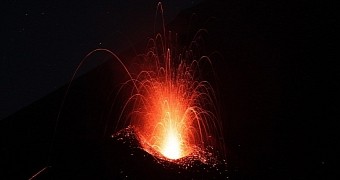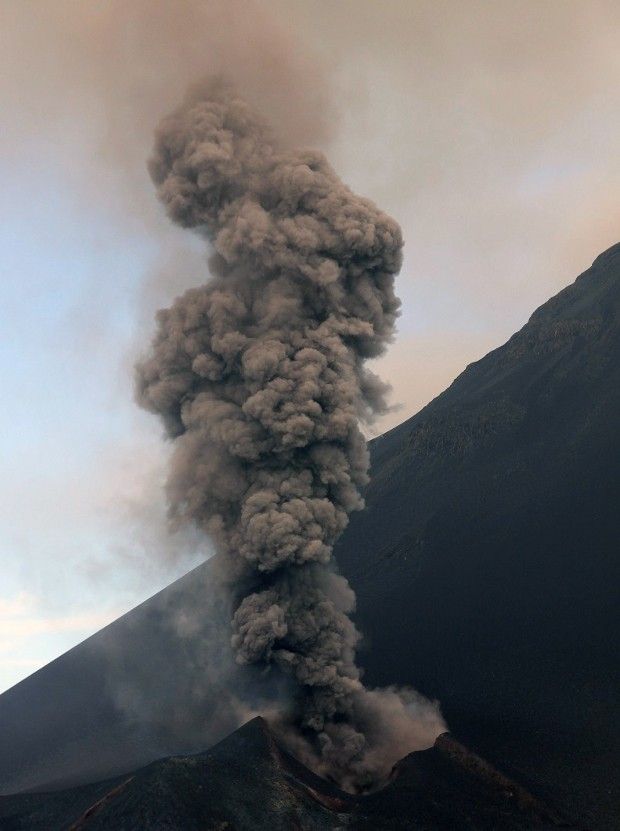Towards the end of last year, a volcanic eruption began on Cape Verde's Fogo island in the Atlantic Ocean. The eruption is still ongoing and researchers say that it is by far the largest the Cape Verde archipelago has witnessed in decades.
It is understood that, as of recently, the amount of magma coming out of the ground has somewhat decreased. Still, the fact remains that, presently, the volcanic eruption isn't showing any sing of subsiding anytime soon.
The eruption is nothing short of impressive
As detailed by scientists with the GFZ German Research Center for Geosciences, Cape Verde's Fogo island, which is essentially a conical volcano comprising several layers of hardened lava, ash and the like, started coughing out magma, ash and all sorts of nasty compounds on November 23, 2014.
The volcanic eruption has since produced enough lava to qualify as the largest the Cape Verde archipelago in the central Atlantic Ocean has seen in well over 60 years, the researchers go on to detail.
Interestingly enough, it wasn't all that long ago when the volcano that makes up this island last erupted. On the contrary, it was back in April 1995 that the Fogo island threw a similar fit and landed itself a brand new crater. Still, this past eruption was by no means as impressive as the current one.
Despite having analyzed the volcano's behavior with the help of satellites and all sorts of other high-tech equipment, researchers are pretty much clueless about when the eruption might stop. For all they know, it could go on for months to come.
The lava has caused considerable damage
Not at all surprisingly, it appears that this ongoing volcanic eruption has caused significant damage over the past few weeks. Thus, it is understood that the lava and the ash have until now destroyed a whole lot of homes, buildings and roads.
Besides, as many as three villages now lie abandoned because of it and thousands of people have so far had to be evacuated. Seeing how the eruption isn't showing any signs of stopping in the foreseeable future, chances are more damages will be reported in the weeks to come.
GFZ German Research Center for Geosciences researchers and other specialists are now hard at work trying to predict what path lava emerging from this volcano might take. Their goal is to make it easier for authorities to save the life of those threatened by this eruption.
“Our team, the GFZ Hazard and Risk Team HART, works in close collaboration with the University of Cape Verde, the Volcano Observatory of the Canary Islands, and the German Aerospace Centre,” explained volcanologist Dr. Thomas Walter.
“On one hand, we are analysing data from the newest remote sensing satellites to develop models of the magma ascent path. On the other, we are collecting data on the lava flows directly in the field by installing volcano monitoring instruments,” he added.

 14 DAY TRIAL //
14 DAY TRIAL // 

